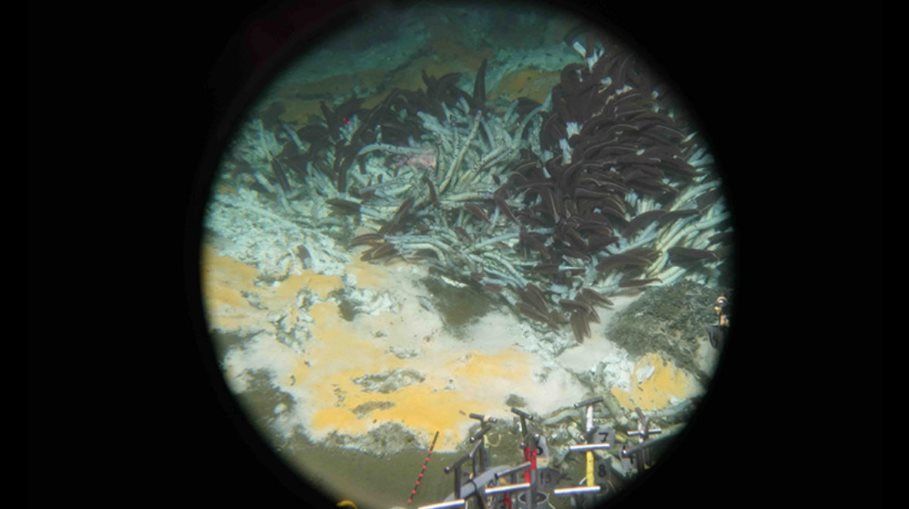Newly discovered deep-sea microorganisms that devour greenhouse gases and oil
U.S. scientists have discovered previously unknown microorganisms with astonishing abilities in the depths of the Gulf of California. Newly discovered microbes feed on greenhouse gases and can degrade oil and other harmful chemicals.
Researchers from the University of Texas at Austin in a paper published in the „Nature Communications” have documented extensive, zrórivers of microbial communitiesóin living in very hot sediments located near the chimneyóin hydrothermal vents at the bottom of the Gulf of California. The gulf contains róin the Guaymas tectonic, whichóra is nearly 2,000 meters deepów and that’s where the microbes were found.
Scientists led by Brett Baker, a professor of marine science at a Texas university, have discovered 22 previously unknown microorganisms in the deep sea, whichóre have surprising abilities. Newly identified microorganisms use greenhouse gases as a source ofóenergy sources.
Scientists estimate that so far we have learned only a small fraction of the world’s living microbesów. This means that there are millions of microorganismsów, whichóre yet to be discovered. Who knows what they can do.
Teamó³ Baker is studying the interactions between microbial communitiesów and nutrients available in their environment. Researchers take from the bottom of the próbki sedimentsów and incidentally a microorganismóin, and then sequence the DNA from próbek. In this wayób obtain sets of genów. From these data prób are inferring howób microbes consume ródifferent nutrients.
– We try to look for the organismów, whichóre have been studied before and look for similarities and ró¿nic – explained Nina Dombrowski, currently working at Króleft at the Netherlands Institute for Marine Research, but for years she was affiliated with a Texas university. – This may seem easy at first, but in fact it is not. Often more than half of the genomeów, które we find is unknown and has not been characterized to date – she added.
Sediment analysisów from the depths of the Gulf of California, where volcanic activity raises temperatures to about 200 degrees Celsius, has yielded 551 genomesóIn, from whichórych 22 were previously unknown positions. Próbki from the bottom were collected using the bathyscaph Alvin.
Scientists in the deep sea have discovered new species of microbialów, whichóre are so genetically different from those already known to us that they represent new branches in the phylogenetic tree of the. Many of them use hydrocarbons, such as methane and butane, as sources ofódles of energy to survive and grow. This means that the newly identified bacteria could help reduce the concentration of gasóin greenhouse gases in the atmosphere. Perhaps they can handle róalso with oil spills.
– Ocean depthsów contain an expansive and undiscovered róbiodiversity. These microscopic organisms can degrade crude oil and other harmful chemicals. Under the bottom of the ocean there are huge reservoirs of gasóin hydrocarbon gases – including methane, propane, butane and others – and these microorganisms prevent the release of these gasesóin greenhouse gases into the atmosphere,” said Baker, the head of theówny author of the publication.
– The tree of life is something that people prób have understood since Darwin came up with the concept more than 150 years ago. Próba tree mapping is crucial to understanding all aspects of theóin biology. Along with DNA sequencing and computer-based approaches, with which theórego we’re using, we’re getting closer and closer to that,” admitted Baker.

